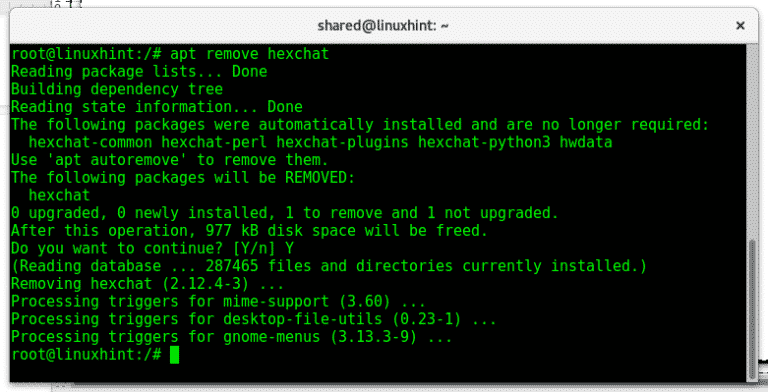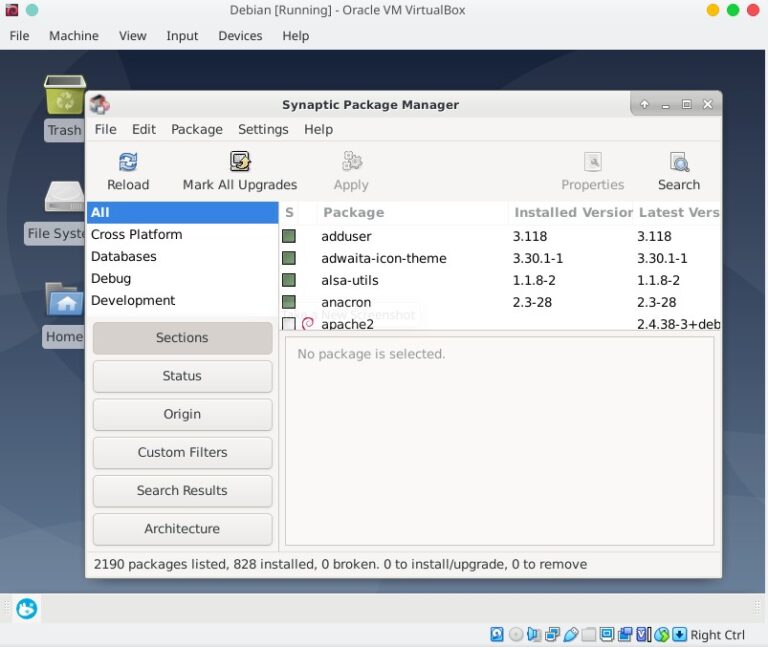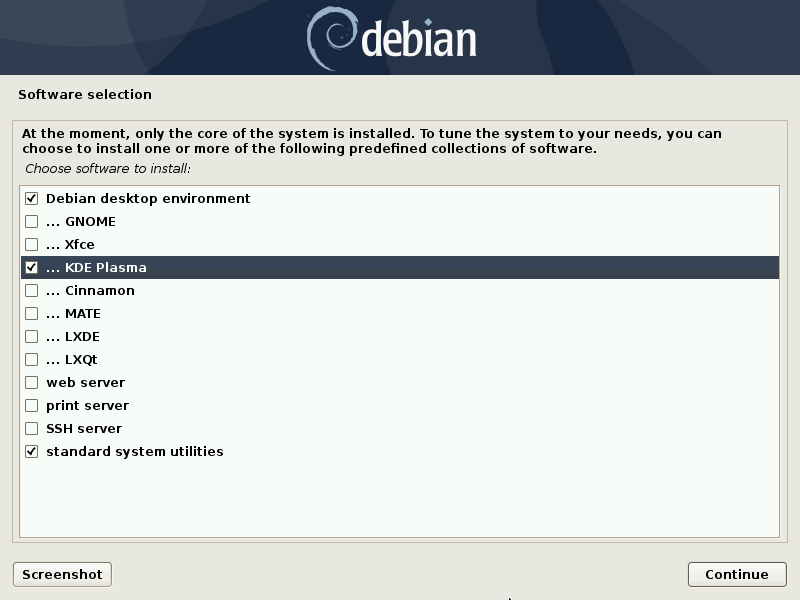

- #Debian package manager how to#
- #Debian package manager install#
- #Debian package manager software#
- #Debian package manager download#
Each link points to the repo associated with a particular release - in this case Ubuntu's Trusty - and a specific category. You can see pairs of links to Internet URLs: one of each pair called deb - obviously for Debian - and the other deb-src.
#Debian package manager how to#
You tell Linux how to find the Debian repositories through the sources.list file that's kept in the /etc/apt directory. The best way to access the wide world of Linux software, therefore, is through APT (which stands for Advanced Packaging Tool). Now, as you might have noticed, dpkg only works with local packages, and not external repositories. dpkg -r will remove a package, dpkg -P will purge it, and dpkg-reconfigure will allow you to configure a package's settings over again dpkg -unpack will unpack but not install. dpkg defaults are kept in the dpkg.cfg file.
#Debian package manager software#
You can manage local software packages using dpkg.

You can use debconf if you want to simply display a package's configuration: And dpkg-reconfigure will reconfigure an already-unpacked package. To remove the package files AND its user settings, use purge. You can remove a package that's currently installed, identifying it through its short name, using dpkg -r.

I would imagine this might be useful if you plan to manually create a non-standard configuration profile. You can use dpkg.to unpack package files without actually going through configuration process. We'll use this fictitious package to illustrate Debian naming standards, where my_package is the package name, the number is the package version, i386 is the architecture it was written for (32-bit, in this case), and deb identifies it as a Debian package.
#Debian package manager install#
deb package you can install it with root authority using dpkg -i This particular copy has only two settings concerning package signatures and log locations. dpkg's default behavior is controlled by the dpkg.cfg file found in the /etc/dpkg directory. In the meantime, we'll go through some of dpkg's own functions. We'll explore three of these: apt, aptitude, and synaptic a bit later. However, there are a number of frontend programs - each with its own unique features - that can do a great deal more. You can install, remove, status-check and generally manage your software using the dpkg command and its arguments. So let's take a good look at Debian's dpkg - and leave RPM for the next video. But it does mean that the fine working details of the two package managers will be a bit different, and you will definitely be expected to be familier with them for the exam. That's seldom a problem, since most software that's available on one, will be similarly accessible through the other. deb package meant for dpkg won't work on a system that's looking for. Through this video and the next, we'll focus specifically on these two managers - which just happens to line up nicely with the exam expectations.īesides maintaining the software repositories themselves, to ensure easy compatibility, package managers also establish rules and practical guidelines for how the packages are built. The two largest of these - Debian's dpkg, and RPM - serve some of the most popular modern distributions: dpkg can count Debian, Ubuntu, and Linux Mint among its "customers," while RPM (whose "r" originally stood for Red Hat) serves Red Hat, Fedora and openSUSE, among others. Linux distributions mostly align themselves with one or another of the larger package management systems. Managing packages on Debian Linux systems using dpkg and apt-get And considering just how many thousands of software packages these repositories contain, the fact that everything works as well as it does is something of a marvel.

#Debian package manager download#
Since these repositories are closely curated, you can be confident that the software you download will be useful, fully functional and malware-free. As we mentioned in the previous video on shared libraries, the various Linux package management systems do a spectacular job handling installation and dependency tracking for us.


 0 kommentar(er)
0 kommentar(er)
